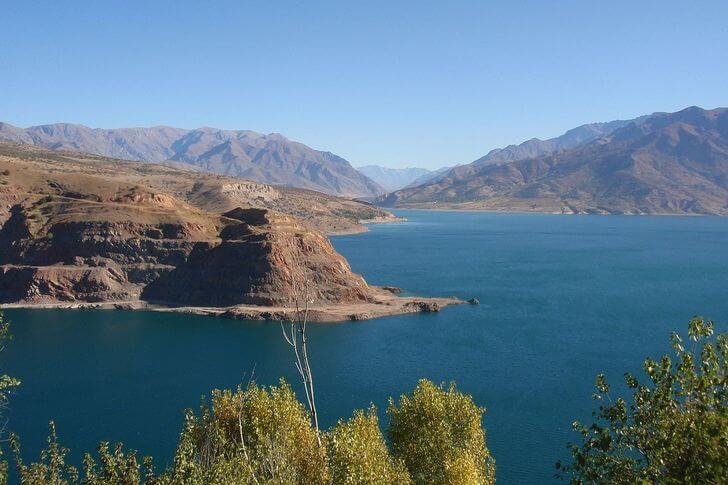Tashkent has existed for more than 2000 years. During this time, Arabs and Mongols managed to take over here, until the 19th century the city was part of various khanates, until it was conquered by the troops of the Russian Empire. After 1991, it became the capital of independent Uzbekistan, which gave a new powerful impetus to cultural and industrial development.
In Tashkent, tourists will see valuable monuments of the Middle Ages: the complexes of Khazret Imam, Sheikhantaur, the Kukeldash madrasah, as well as new mosques that are not inferior in beauty to ancient buildings - Minor and Khoja Akhrar Vali. In numerous museums, guests of the city will have the opportunity to get acquainted with the rich Uzbek culture and appreciate the contribution made by local masters to the treasury of world art.
What to see and where to go in Tashkent?
The most interesting and beautiful places for walking. Photos and a short description.
- Tashkent metro
- Independence Square
- Amir Temur Square
- Khazret Imam Complex
- Sheikhantaur complex
- Madrasah Kukeldash
- Mosque Minor
- Mosque Khoja Ahrar Vali
- Assumption Cathedral
- Cathedral of the Sacred Heart of Jesus
- Museum of Applied Arts of Uzbekistan
- Museum of Arts of Uzbekistan
- Museum of History of Uzbekistan
- Museum of Timurid History
- Museum of Railway Engineering
- Bolshoi Theatre. Alisher Navoi
- Palace of Prince Romanov
- Memorial complex Shahidlar hotirasi
- Monument Courage
- Tashkent TV tower
- Tashkent circus
- Bazaar Chorsu
- Alisher Navoi National Park
- Japanese garden
- Charvak reservoir
Tashkent metro
The Tashkent metro began to be built in the 1970s, it became the very first transport system of this type in Central Asia. Today, the subway is not only a convenient and fast means of transportation, but also one of the main city attractions. The decor of the stations often contains national motifs. During Soviet times, the Tashkent metro was considered one of the most picturesque in the entire Union.
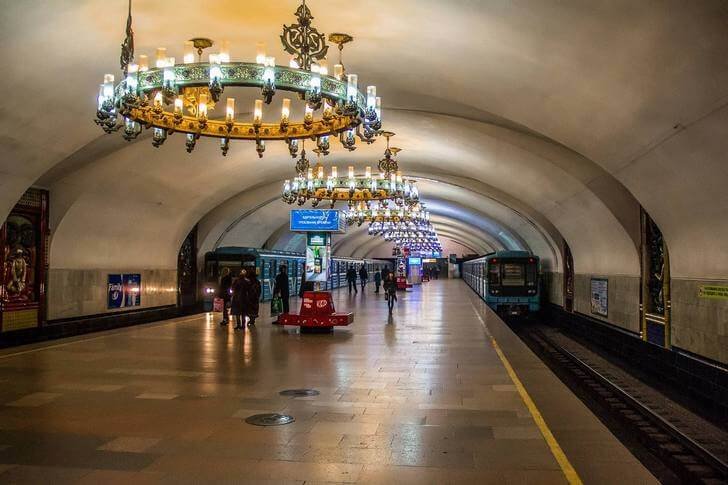
Independence Square
The square is located in the very center of the city near the place where the palace of the Kokand khans was located until the middle of the 19th century. After the establishment of the Russian protectorate, the residence of the governor-general was built here. In Soviet times, the square was renamed in honor of V. I. Lenin. In 1991, the monument to the leader of the proletariat was dismantled and the Independence Monument was erected in its place.
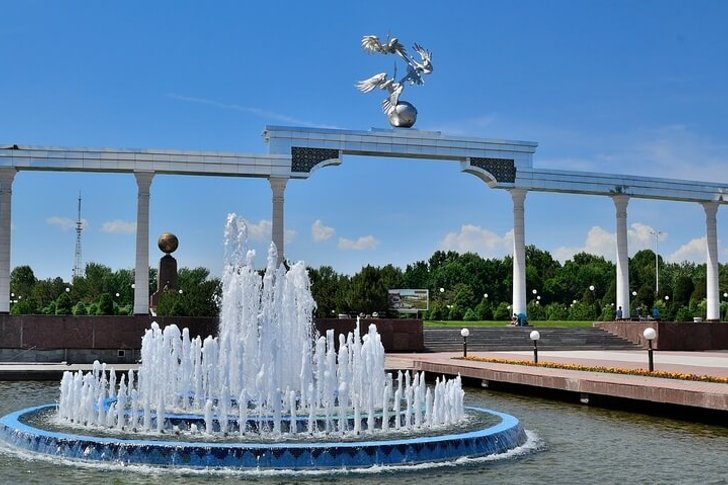
Amir Temur Square
The square was founded in 1882 by order of the Turkestan Governor-General M. G. Chernyaev. In its center is a monument to Amir Temur (Tamerlane) - an outstanding statesman of the XIV century, who created a huge empire. Until 2009, there was a small park around the monument, but after reconstruction it turned into a square with fountains and green lawns. There are several interesting sights in this place.
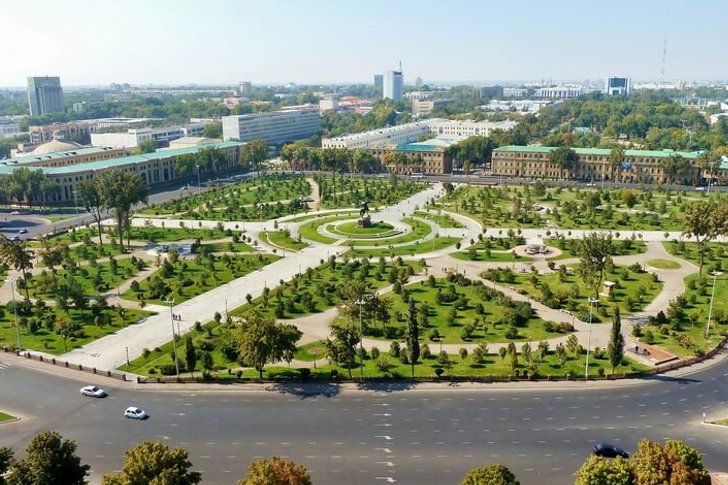
Khazret Imam Complex
A complex of religious buildings erected in honor of one of the first Islamic preachers in Uzbekistan - Hazrat Imam. It consists of a cathedral mosque, two madrasahs, a mausoleum and another Namazgokh mosque. The structures were erected at different times from the 16th to the 21st centuries. The oldest is the Barakkhan madrasah built in 1532, the newest is the Muslim temple built in 2007, built on the initiative of President I. Karimov.
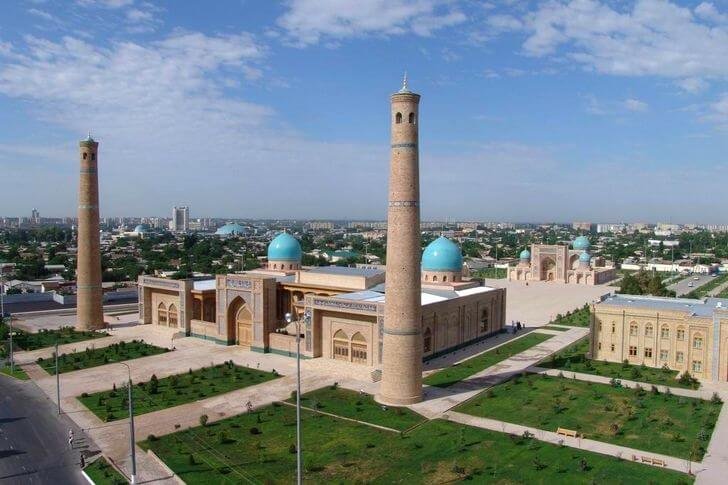
Sheikhantaur complex
The architectural ensemble, which is one of the most important monuments of Uzbekistan. Sheikhantaur is a memorial complex dedicated to Sheikh Hovendi Tahur. It consists of the tomb of at-Takhur of the XIV century, another tomb of the XV century, where the remains of Kyldyrgach-bey rest, and other architectural monuments. Previously, there were several mosques here, but they were destroyed in the 20th century.
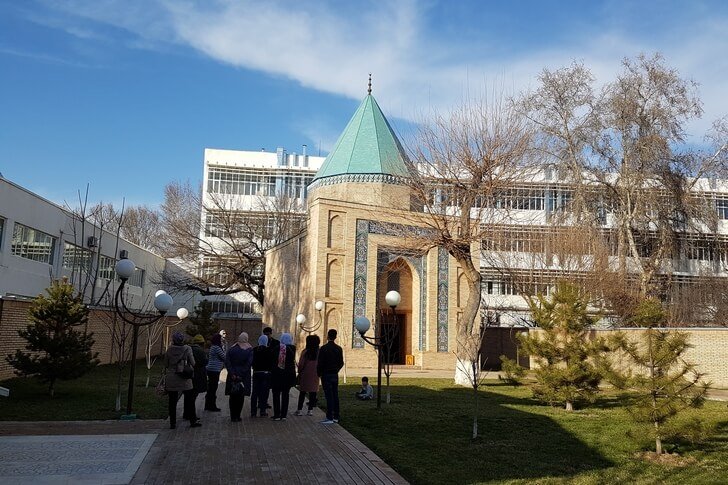
Madrasah Kukeldash
A religious educational institution of the 16th century, which for many years served as the cultural and educational center of the city. In the 18th century, a caravanserai was placed here, in the 19th century - a khan's fortress. There is a legend that at that time unfaithful wives were thrown from the walls of Kukeldash in bags, and other public executions were also carried out in the fortress. After the restoration of the madrasah building in the 20th century, it was returned to its original functions.
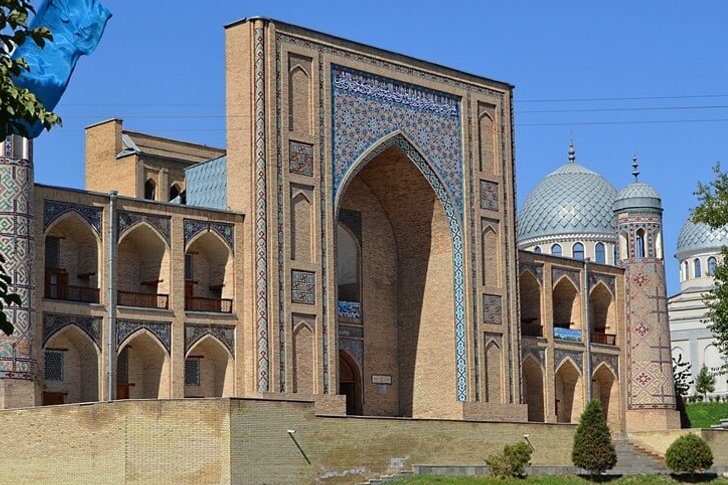
Mosque Minor
A new Muslim temple in 2013, built on the initiative of President I. Karimov. The building was erected in the traditional architectural style, typical for Central Asia during the era of the Bukhara Khanate. The mosque has two high minarets and a sky-blue dome. The interior space is decorated in the manner of "naksh". The prayer hall is designed for 2400 people, which makes it one of the largest in Uzbekistan.
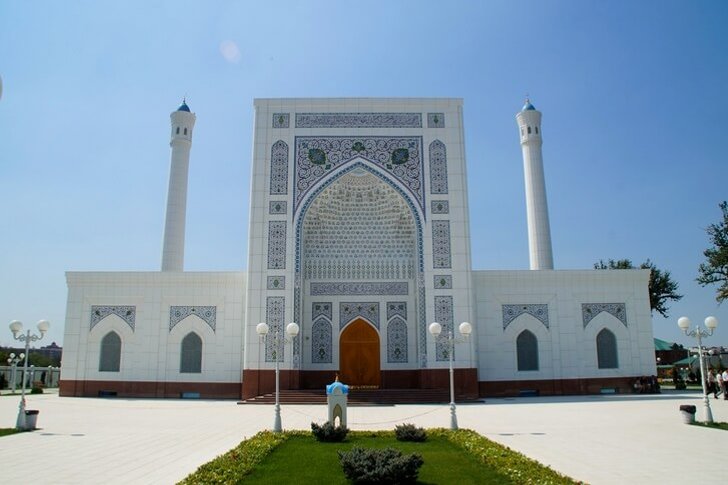
Mosque Khoja Ahrar Vali
The Friday mosque of the palace type, which was founded in the 9th century in honor of the conquest of Tashkent. However, according to historical data, the first temple building was built only in the 15th century. Over the following centuries, the building suffered from natural disasters and destruction. As a result, after a long period of atheism, by 1997 the mosque lay in ruins. In 2003, a new one was erected on the site of the historic building.
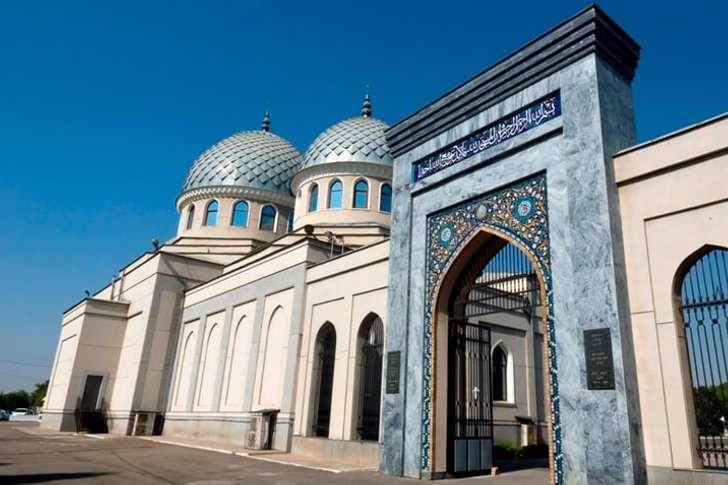
Assumption Cathedral
The Orthodox Church of the Russian Orthodox Church, built in 1878 at the expense of the Governor-General and members of the Christian community of Tashkent. From 1933 to 1945, the church was closed, but then it was again handed over to believers and re-consecrated. The building underwent renovation in the 1990s. During the work, the adjoining auditorium was ennobled and the church bell tower was rebuilt.

Cathedral of the Sacred Heart of Jesus
Catholic church in the Neo-Gothic style, designed by the Polish master L. Panchakevich. Construction began in 1912, but after the October Revolution, work was stopped. The cathedral stood unfinished until the 1970s and 80s, until it was recognized as an architectural monument. In the 1990s, the building was transferred to the Catholic parish and completely reconstructed.
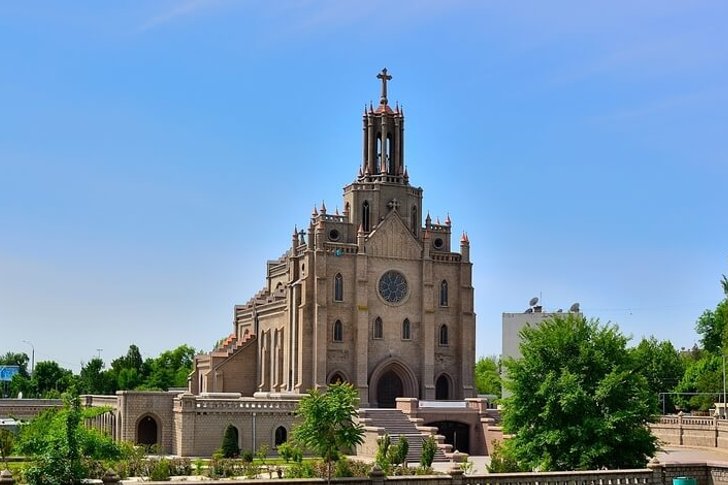
Museum of Applied Arts of Uzbekistan
The history of the museum began in 1927 with the organization of an exhibition of works by Uzbek masters. Gradually, the number of exhibits increased and the collection needed a separate building. So in 1937, the "Museum of handicrafts" appeared. Its collection consists of carpets, jewelry, textiles, national costumes, ceramics and other samples of folk craftsmanship, carefully preserved for posterity.
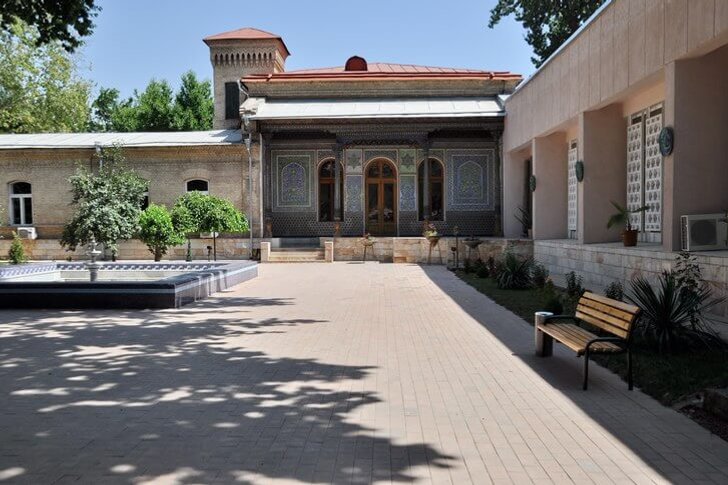
Museum of Arts of Uzbekistan
The collection was founded in 1918. At first, it consisted of works of art, furniture, dishes, sculptures and interior items confiscated from local aristocrats after the revolution. In subsequent years, the collection was regularly replenished at the expense of the funds of other museums. Today, the gallery, among other things, exhibits paintings by Russian and Western European artists of the 16th-19th centuries.
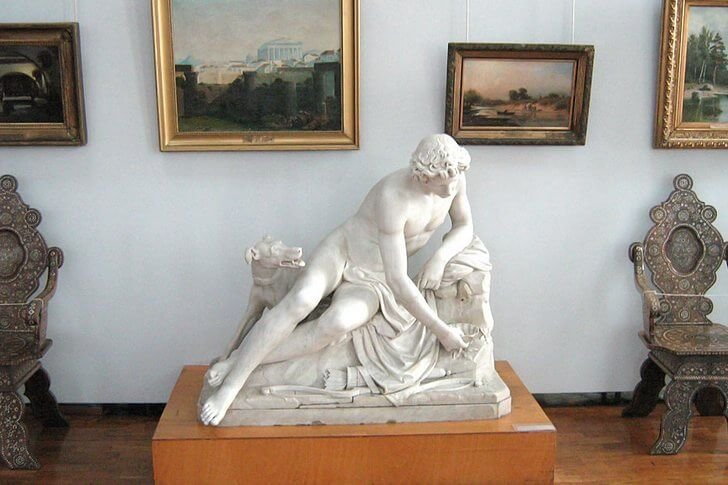
Museum of History of Uzbekistan
The museum is considered one of the oldest and largest in Uzbekistan. More than 250 thousand exhibits are stored in its funds. The collection is dedicated to the history of Uzbekistan from the Stone Age to the present. The museum appeared thanks to the initiative of a group of scientists in 1876. At the beginning of the 20th century, he even took part in international exhibitions in Milan and Paris. In 1970, the collection moved to a modern building on Rashidov Ave.
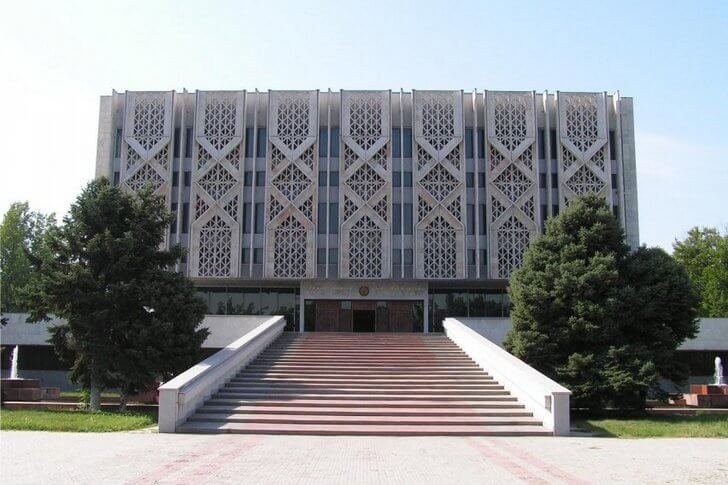
Museum of Timurid History
The exposition is dedicated to the reign of Timur and the dynasty founded by him. The museum was opened in 1996 thanks to President I. Karimov in honor of the 660th anniversary of the birth of Tamerlane. Its main exhibits are a copy of the Samarkand Kufic Koran (Koran Usman) and panels with scenes from the life of the famous commander. The museum also exhibits various archaeological finds.
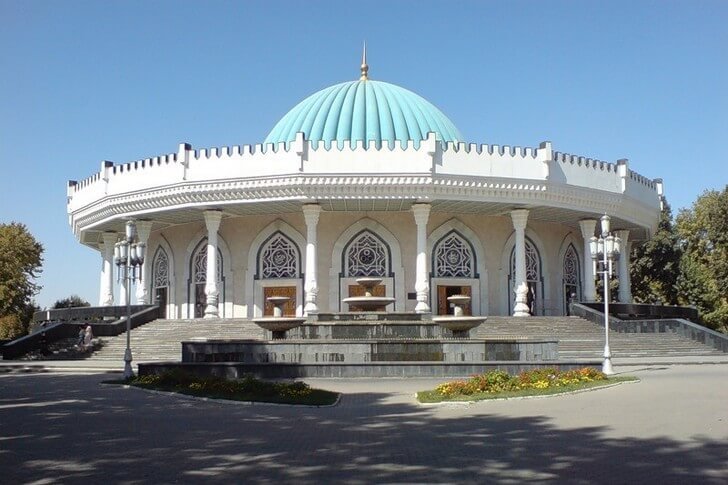
Museum of Railway Engineering
The collection appeared in 1989 after the celebration of the 100th anniversary of the founding of the Central Asian Railway. The exhibition, created especially for the anniversary, aroused such interest among visitors that it was decided to turn it into a permanent one. Thus, a whole museum was born. The exposition is in the open air. It includes steam locomotives, diesel locomotives, electric locomotives, wagons and repair equipment.
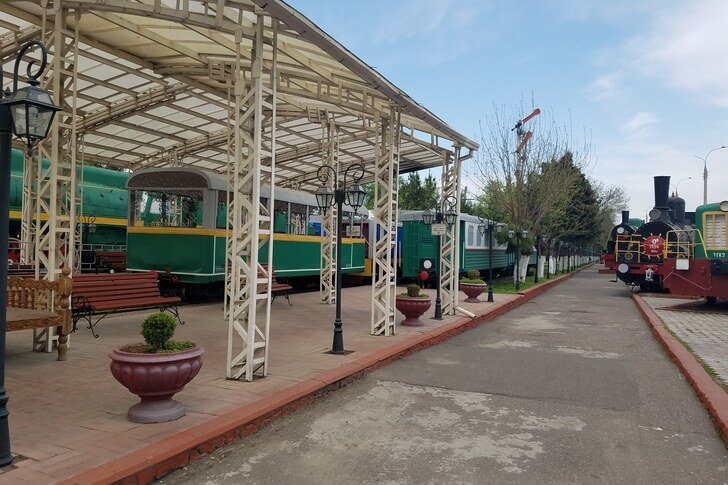
Bolshoi Theatre. Alisher Navoi
A musical theater named after the national poet Alisher Navoi. The stage opened in 1939 with a production of the Uzbek opera Buran. The theater building was erected according to the project of the architect A. V. Shchusev. Folk artists took part in the decoration: Kh. Boltaev, A. Khudaibergenov, U. Muradov and others. The construction is notable for the fact that each foyer has its own design, reflecting the characteristics of different regions of Uzbekistan.
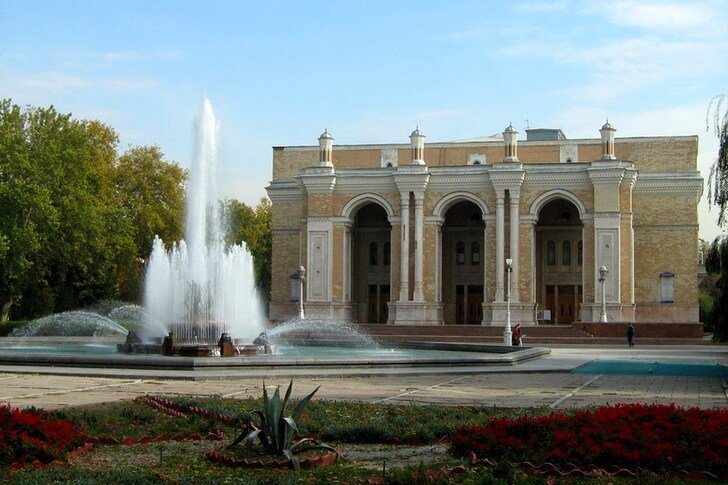
Palace of Prince Romanov
The building is located in the center of Tashkent near Amir Temur Square. It was erected at the end of the 19th century in the Art Nouveau style popular at that time. The architectural appearance of the palace stands out from the usual urban landscape, since buildings in this style were not built in the Uzbek capital. The building was intended for Prince N. K. Romanov, the grandson of Nicholas I. His Serene Highness was exiled in Tashkent for stealing family jewels.
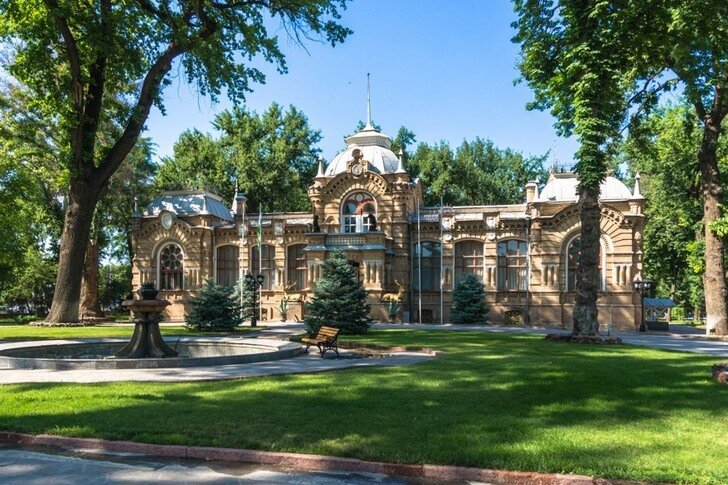
Memorial complex "Shahidlar hotirasi"
A museum dedicated to a certain period in the history of Uzbekistan, when the country was under the protectorate of the Russian Empire, and then as part of the Soviet Union. The exposition is divided into several sections, which follow each other in chronological order. Much attention is paid to the topic of political and ethnic repressions that took place in the past. The museum was established in 2001.
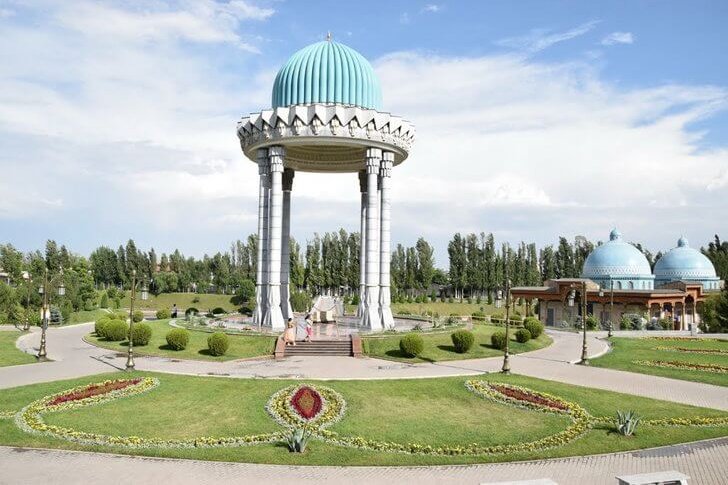
Monument "Courage"
The monument was created in 1970 by sculptor D. Ryabichev in memory of the 1966 earthquake. This natural disaster left a deep mark on the history of the city, as as a result of strong shocks, almost half of the residents of Tashkent were left homeless, and many administrative buildings were also destroyed. The Courage Monument embodies the calmness and resilience with which the inhabitants met this devastating disaster.
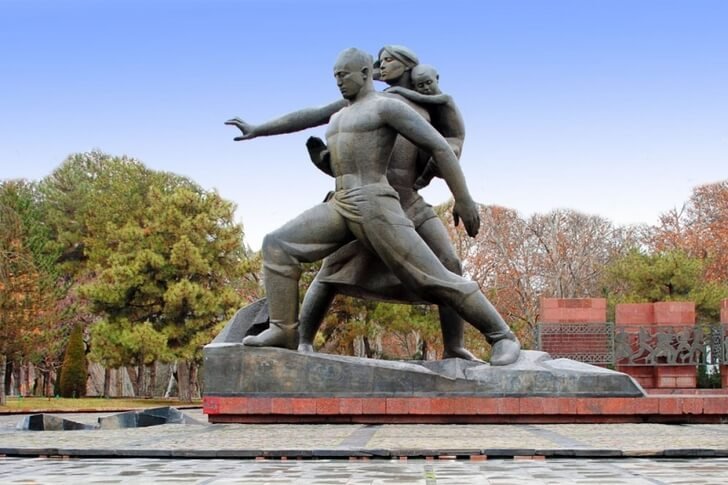
Tashkent TV tower
TV tower with an observation deck. It is considered the second largest in Central Asia after the pipe of the Kazakh hydroelectric power station. The height of the tower is 375 meters. The structure was built in the period 1978-84, in 1985 it started working at full capacity. Inside, at a height of 94 meters, there is a circular observation platform for tourists, a few meters higher - the Koinot restaurant, which consists of two levels.
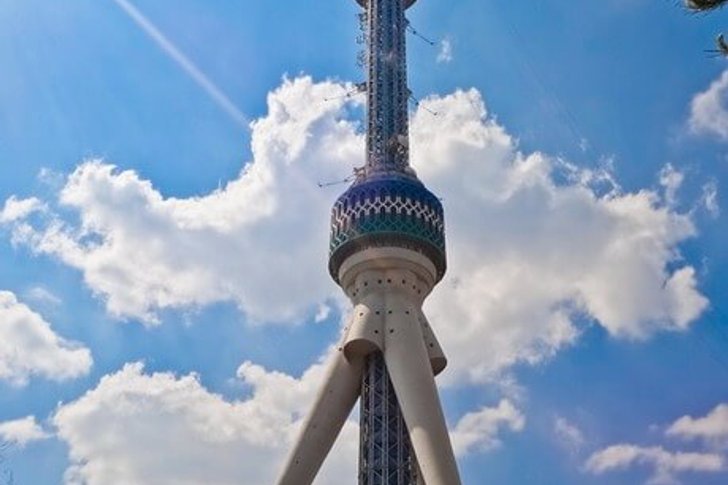
Tashkent circus
Since the end of the 19th century, wandering circus groups from the Russian Empire and European countries have constantly toured in Tashkent. The first building of the circus tent was destroyed in 1966 as a result of an earthquake. 10 years later, a new stage was erected. Today the troupe of the Tashkent circus tours all over the world. Moreover, many artists, thanks to their skills, have become winners of international competitions.
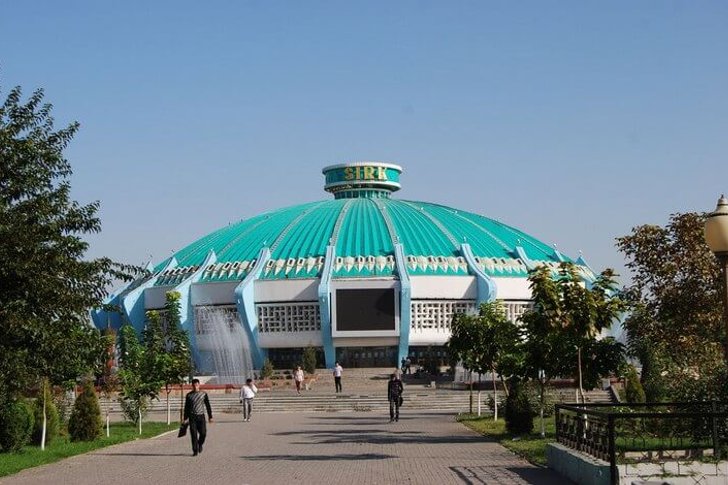
Bazaar "Chorsu"
The market is considered one of the oldest not only in Uzbekistan, but throughout Central Asia. It is located in the old part of Tashkent called "Eski Shahar". The bazaar gained popularity during the time of the descendants of Tamerlane, as it was an intermediate point on the Great Silk Road. All kinds of goods are sold at Chorsu: food, clothes, products of local artisans, household items and other things.
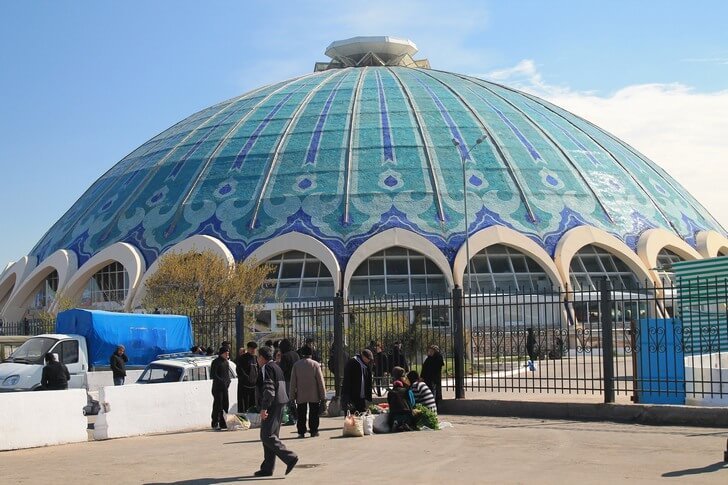
Alisher Navoi National Park
The park, named after the national poet Alisher Navoi, was opened in 1937 near the street. Almazar. In addition to the standard attractions, there is a real railway track, where teenagers are involved as workers. There are many other sights on the territory of the park: the Abulkasim Madrasah, the monument to Alisher Navoi, the concert hall, the parliament building of the Oliy Majlis.
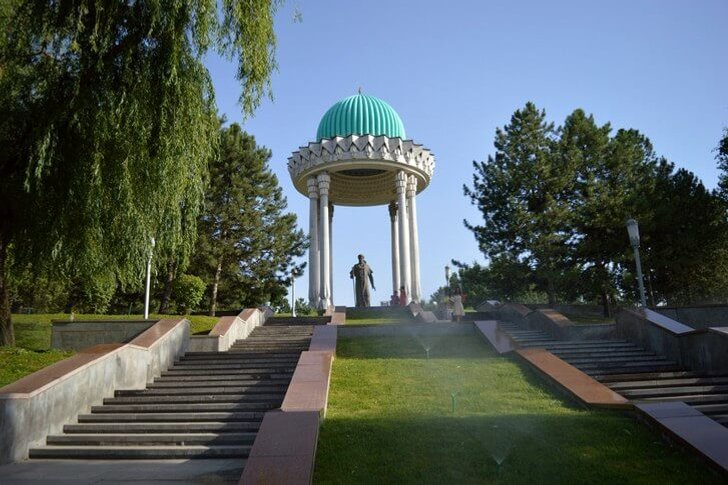
Japanese garden
Japanese-style landscape park near the center of Tashkent. It was created in 2001 specifically for a relaxing holiday away from the hustle and bustle. Ducks, swans, storks are found in local reservoirs, peacocks calmly walk along the alleys. The park is a popular place for wedding photo shoots. Another advantage of the Japanese Garden is that there are usually few people here, since the entrance to the territory is paid.
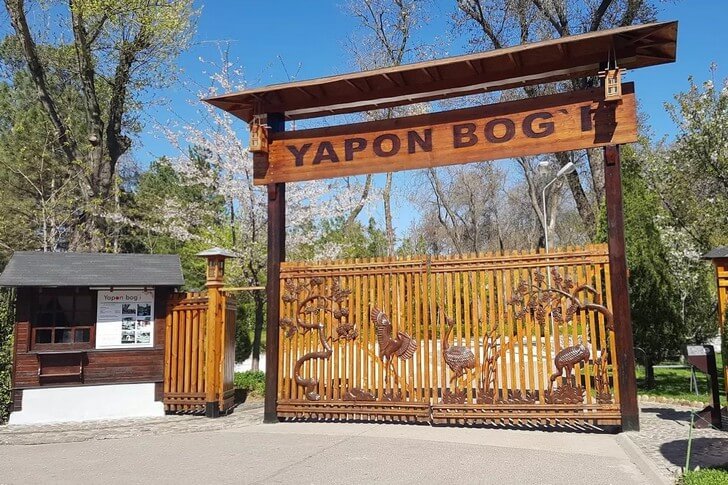
Charvak reservoir
An artificial reservoir that was created in the 1970s. It is located about 60 km from Tashkent. Around the reservoir there are recreation areas, camps for children, hotels and boarding houses. Here you can sunbathe, swim, ride a jet ski or boat. From the shores there is a magnificent view of the mountain peaks of the Big and Small Chimgan. A convenient high-speed highway leads from Tashkent to the reservoir.
